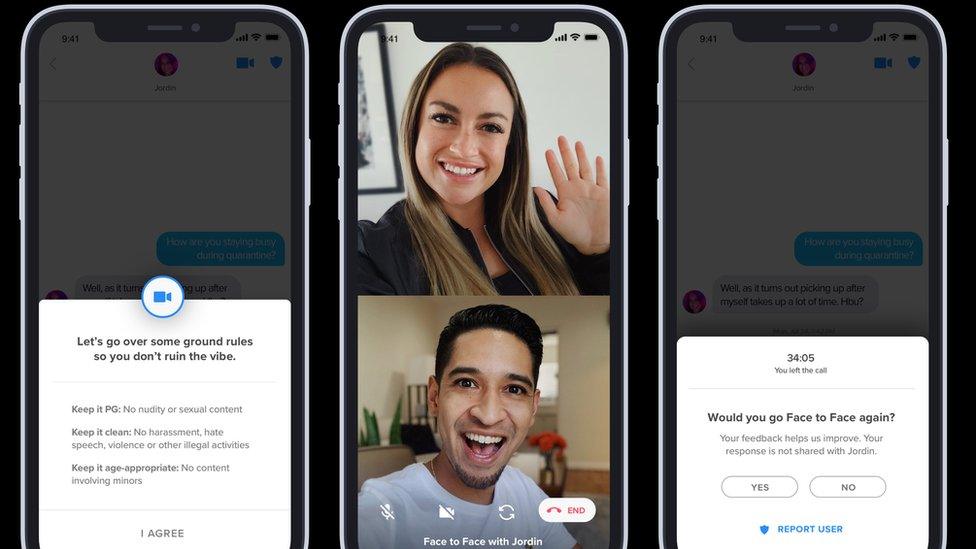Tinder offers face-to-face video chats for potential matches
- Published

Both parties must agree to video before the feature is enabled
Dating app Tinder is rolling out one-to-one video calling for its users, which could prove popular as the pandemic limits the possibilities of in-person dating.
The firm said the new feature would put safety first.
The free "Face to Face" feature will only be enabled if both people want it, and if only one clicks the video icon, the other will not be alerted.
Rival Bumble already allows video calling.
The feature, which has been built by the firm's trust and safety team, will only let people chat to each other if both are facing the camera.
Other safety features of Face to Face include:
it can be disabled at any time
callers must agree to a set of ground rules
users can send a report to Tinder at any time once the call ends if something made them uncomfortable
It has previously been trialled among a small number of users in a handful of countries, but will now roll out worldwide
"We're excited to share that our Face to Face feature is rolling out to our global community after receiving positive feedback from our members who have had early access to it," said Rory Kozoll, head of Trust and Safety Product at Tinder.
"This adds to our growing list of features built focused on member safety throughout their dating journey, like Photo Verification, Safety Center and our offensive message detection technology."
According to app measurement firm AppAnnie, Tinder remains in the top three lifestyle apps despite the global pandemic making dating in-person much harder.
In May, Tinder's then chief executive Elie Seidman said that the coronavirus had had a dramatic effect on the way people used the app.
Although engagement was up - the app saw a record three billion swipes on one day in March - there was less interest in paid-for premium subscriptions.
The app has been downloaded more than 340 million times since launch in 2012, but only six million pay for its "gold" service.
- Published21 May 2020